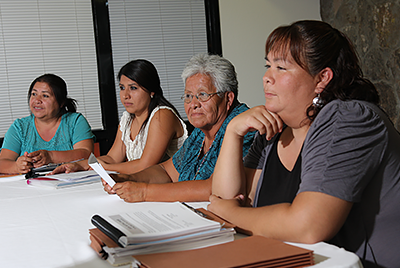Parents and family members often have questions about their program's Policy Council. Explore this tip sheet to learn answers to common questions about the Policy Council.
As a parent, you may wonder what the Policy Council is and about its role in Head Start programs. You may have questions about how to join, serve on, or leave the Policy Council.
We encourage you to discuss your questions with your child's teacher, your family service worker, the program director, or other staff. They can partner with you to make your Policy Council experience the best it can be.
The Policy Council is a group of Head Start parents and community members who help lead and make decisions about their program. Policy Council members are elected by the parents of children enrolled in the program. Parents often join the Policy Council after serving on a parent committee.
The Policy Council meets regularly as a group. Members can serve for one year at a time, and for up to five years. They work closely with the program's management team and governing body to provide overall direction for the program.
Why Do Head Start Programs Have a Policy Council?
 When Head Start began in 1965, its founders understood that parents are essential partners in educating young children. They felt parents should help decide how Head Start services can most benefit their family and other families in the community.
When Head Start began in 1965, its founders understood that parents are essential partners in educating young children. They felt parents should help decide how Head Start services can most benefit their family and other families in the community.
Head Start created the Policy Council as a formal leadership and policy-making role for parents. Today, every Head Start program must have a Policy Council as part of its leadership structure. Through the Policy Council, parents have a voice in decisions about how the program spends money, what children do in their classrooms, and how the program works with community partners.
Children, parents, and the program benefit when parents take on leadership roles. Children learn more and experience healthier development at school and at home. Parents can become more confident, gain skills, and connect with other parents and staff. Program staff learn about the strengths, interests, and needs of the children, families, and community they serve.
Additional Resources
- Joining the Policy Council
- Serving on the Policy Council
- Leaving the Policy Council
- Download the PDF for All Tip Sheets
« Go to Head Start Policy Council Series
Read more:
Resource Type: Article
National Centers: Parent, Family and Community Engagement
Audience: Family Service Workers
Last Updated: February 21, 2025
